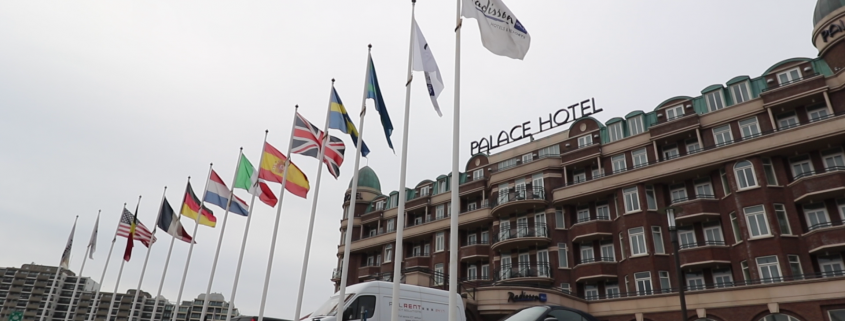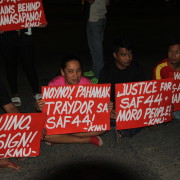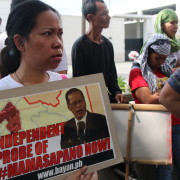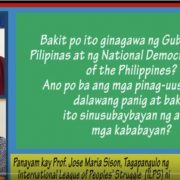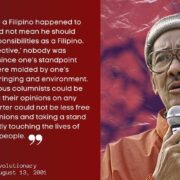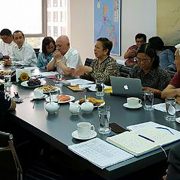When ‘ceasefire’ means prolonging a war
PALACE HOTEL, Noordwijk Aan Zee, The Netherlands—It’s somewhen between midnight and dawn and the hotel is quiet. A solitary employee was patrolling its cavernous lobby, his footfalls echoing loudly. A few hours earlier, thousands of voices filled the hall and thousands of footfalls pounded its marble floor, creating a day-long din.
But, in essence, there had only been worthless silence. There have been lots of noises but there has been little said that could accelerate the peace negotiations to its hoped-for just conclusion.
The scheduled opening of the fifth round of formal peace negotiations did not happen. Again. For the second consecutive time, in this hotel, what was supposed to be a day spent for formal talks became a frantic day of threats, accusations and counter-accusations, and backchannel meetings and tactics.
It was all because of a word: ceasefire.
Last April, the Government of the Republic of the Philippines (GRP) Negotiating Panel submitted to its National Democratic Front of the Philippines (NDFP) counterpart a demand for a bilateral ceasefire agreement before the fourth round of talks are yet to formally open. It was among GRP President Rodrigo Duterte’s four “barest conditionalities.” That round’s formal opening eventually pushed through after a day, but not before the word “ceasefire” put the negotiations in jeopardy. It took the considerable skill of both panels (composed of many veteran negotiators) to look for ways to work around the obstacle.
The parties’ solution was to agree to forge a bilateral ceasefire agreement after ground rules and definition of terms have been agreed upon and while negotiations on socio-economic reforms as well as political and constitutional reforms are being accelerated. It was a brilliant compromise, well thought-out to satisfy both the NDFP’s insistence on meaningful social reforms and the GRP’s desire for a stop to the New People’s Army’s (NPA) punishing attacks against the Armed Forces of the Philippines (AFP). The round ended successfully, with assurances that both sides would thenceforth give primacy on socio-economic reforms negotiations.
They did. Back in Manila, the parties, unilaterally and bilaterally, convened their working committees and pushed things forward, especially on agrarian reform and rural development. They agreed on more items and clarified matters on contentious points. It was thought the negotiating panels would only have to receive and approve the recommendations of the reciprocal working committees on socio-economic reforms and the fifth round would have been one of the most successful ever.
But came the demand for a bilateral ceasefire before the formal opening. Again.
Presidential Peace Adviser Jesus Dureza said they met with President Rodrigo Duterte Wednesday when the demand for the CPP to rescind its order to the NPA to further intensify its military operations against the AFP was issued. In a press conference yesterday, however, the GRP said a bilateral ceasefire is actually part of the demand.
The meeting, however, was mainly a command conference on the administration of Duterte’s martial law declaration over the entire Mindanao region following a botched AFP operation against an armed group in Marawi City. The two demands, therefore, were made under the context of a crisis not of NPA’s doing. Yet, GRP defense secretary Delfin Lorenzana dragged the NPA into the martial law fray that led its political organ, the CPP, no choice but to issue its own directive. By the time the NDFP panel indirectly learned of Lorenzana’s withdrawal of his controversial statement, the two demands had already been submitted to the NDFP.
The NDFP expectedly took exception. Newly-designated NDFP panel spokesperson and former chief negotiator Luis Jalandoni told reporters that should the GRP panel walk out of the talks because the NDFP could no longer accommodate the demands as it did last April, “it was the GRP who made the decision to cancel the round.”
What was claimed to be a pitch for a goodwill measure has become a stumbling block to the acceleration of the negotiations for the substantive agenda of socio-economic reforms. What was repeatedly-billed as a measure to reduce the number of battlefield deaths on both sides is preventing real negotiations from proceeding. What is being touted as a beneficial agreement for the marginalized, especially peasant and indigenous peoples’ communities, is making it harder for the panels to find real solutions to landlessness, poverty and joblessness, lack of national sovereignty, lack of self determination of indigenous peoples and Bangsamoro, and environmental destruction.
Grotesquely, the word “ceasefire” is becoming another reason for prolonging the nearly 50-year civil war.
The Agreement on a Joint Ceasefire Agreement is among the agreed-upon issues to be tackled once the fifth round has been formally opened, not before. The ceasefire committees have met back in Manila and are supposed to present the result of their discussions to the panels assembled. It would be beneficial to the peace process if the ceasefire proposal would be tackled during the formal negotiations.
One hopes the second day of the fifth round would just be like the second day of the fourth round when the parties agreed to proceed to negotiate on the substantive agenda and not be sidetracked by a side issue. One hopes the word “ceasefire” would not be a reason for a cancelled round, but an incentive after the root causes of the armed conflict have been addressed.
By then, it would no longer be temporary but permanent, not unilateral or bilateral but uniting. By then, it would genuinely be a cessation of hostilities spawned by the dawning of a just and lasting peace. # (Raymund B. Villanueva)

